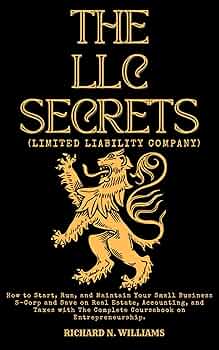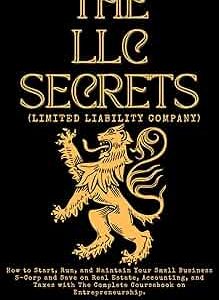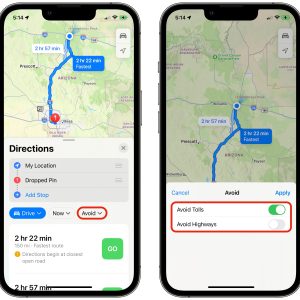

An LLC, or limited liability company, is a type of business structure in the United States that provides limited liability to its owners, meaning that they are not personally liable for the debts and liabilities of the business. This is in contrast to a sole proprietorship, where the owner is personally liable for all debts and liabilities.
An LLC is formed by filing articles of organization with the state in which it will operate. Once the LLC is formed, it is a separate legal entity from its owners. This means that the LLC can own property, enter into contracts, and sue and be sued in its own name.
An LLC is not a business license. A business license is a permission granted by a government agency that allows a business to operate in a particular location. Business licenses are typically required for businesses that have a physical presence in a city or county.
While an LLC is not a business license, it is often necessary to obtain a business license in order to operate an LLC. The requirements for obtaining a business license vary from state to state, so it is important to check with the local government agency to determine what is required.
There are several benefits to forming an LLC, including:
- Limited liability: LLC owners are not personally liable for the debts and liabilities of the business.
- Tax benefits: LLCs can choose to be taxed as a corporation or a partnership.
- Flexibility: LLCs can be managed in a variety of ways, giving owners the flexibility to choose the structure that best suits their needs.
If you are considering starting a business, you should consider forming an LLC. An LLC can provide you with the limited liability protection and tax benefits that you need to succeed.
Is an LLC a Business License?
Understanding the essential aspects of “is an LLC a business license” is crucial for business owners and entrepreneurs. Here are nine key aspects to consider:
- Legal Entity: An LLC is a distinct legal entity separate from its owners.
- Limited Liability: LLC owners are not personally liable for business debts and liabilities.
- Business Structure: An LLC provides flexibility in management and ownership structures.
- Taxation: LLCs can choose to be taxed as a corporation or a partnership.
- Business License: While an LLC is not a business license, obtaining one is often necessary.
- State Regulations: LLC formation and operation requirements vary by state.
- Business Activities: The scope of business activities permitted for LLCs may be restricted.
- Formation Process: Forming an LLC involves filing articles of organization with the state.
- Registered Agent: LLCs are required to have a registered agent for legal notifications.
These aspects highlight the legal, financial, and operational considerations associated with LLCs. By understanding these key points, individuals can make informed decisions about whether an LLC is the right business structure for their needs. It’s important to consult with legal and financial professionals for specific guidance on LLC formation and operation.
Legal Entity
Understanding the legal entity status of an LLC is crucial in comprehending its relationship with a business license. When an LLC is established, it becomes a separate legal entity from its owners. This distinction has several implications:
Suggested read: Unveiling the Secrets of Artist Business Cards: Tips and Tricks for Unmatched Impact
- Liability Protection: As a distinct legal entity, an LLC provides limited liability to its owners. This means that the owners are not personally liable for the debts and obligations of the LLC. In contrast, in a sole proprietorship or partnership, the owners are personally responsible for business liabilities.
- Asset Protection: The separation of the LLC from its owners also extends to assets. The assets of the LLC are not considered the personal assets of the owners. This means that creditors of the LLC cannot seize the personal assets of the owners to satisfy business debts.
- Taxation: LLCs have the flexibility to choose their tax status. They can opt to be taxed as a corporation or a partnership. This flexibility allows LLCs to optimize their tax liabilities based on their specific circumstances.
The legal entity status of an LLC is a fundamental aspect that differentiates it from other business structures. By establishing an LLC, business owners can protect their personal assets, limit their liability, and enjoy greater flexibility in tax planning.
Limited Liability
The concept of limited liability is a cornerstone of LLCs and is intricately connected to the question of “is an LLC a business license.” Limited liability means that the owners of an LLC are not personally responsible for the debts and liabilities incurred by the business. This is a significant advantage over sole proprietorships and partnerships, where the owners are personally liable for all business obligations.
The separation of personal and business assets provided by limited liability offers several benefits:
- Personal Asset Protection: LLC owners’ personal assets, such as their homes, vehicles, and savings, are shielded from creditors of the business. Creditors can only pursue the assets of the LLC itself, not the personal assets of the owners.
- Peace of Mind: Knowing that their personal assets are protected, LLC owners can operate their businesses with greater peace of mind, free from the fear of losing their personal wealth due to business setbacks.
- Risk-Taking and Innovation: Limited liability encourages risk-taking and innovation in business ventures. Entrepreneurs are more likely to pursue new opportunities and invest in growth when they know that their personal assets are not at stake.
Limited liability is a key factor that distinguishes LLCs from other business structures. It provides a layer of protection for business owners, allowing them to operate with greater confidence and focus on growing their businesses.
Business Structure
The business structure of an LLC offers significant flexibility in management and ownership structures, which is closely tied to the question of “is an LLC a business license.” This flexibility allows LLC owners to tailor their business operations to meet their specific needs and goals.
One key aspect of this flexibility is the ability to choose the management structure of the LLC. LLCs can be managed by their owners, by a board of managers, or by a combination of both. This flexibility allows LLC owners to determine the level of involvement they want in the day-to-day operations of the business.
Another aspect of the flexibility of LLCs is the ability to customize the ownership structure. LLCs can have multiple owners, each with varying levels of ownership interest and voting rights. This flexibility allows LLC owners to structure their ownership arrangements in a way that meets their individual needs and preferences.
The flexibility of LLCs in terms of management and ownership structures provides several advantages:
- Tailored to Specific Needs: LLCs can be structured to meet the specific needs and goals of the owners, ensuring efficient and effective operations.
- Optimized Decision-Making: The ability to choose the management structure allows LLC owners to optimize decision-making processes, ensuring timely and informed decisions.
- Flexibility in Ownership: The customizable ownership structure of LLCs enables owners to tailor their ownership arrangements to suit their individual circumstances and preferences.
Understanding the flexibility of LLCs in terms of management and ownership structures is crucial for business owners seeking to establish an LLC. This flexibility allows LLCs to adapt to various business scenarios and provides a solid foundation for business growth and success.
Taxation
In the context of the question “is an LLC a business license,” understanding the taxation of LLCs is crucial. LLCs offer flexibility in choosing their tax status, which can significantly impact their financial and operational aspects.
Suggested read: Franchise Business for Sale – Find Profitable Opportunities Near You
- Pass-Through Taxation: By default, LLCs are taxed as pass-through entities. This means that the profits and losses of the LLC pass through to the individual owners, who report them on their personal tax returns. This simplicity can be advantageous for small businesses and startups.
- Corporate Taxation: LLCs can elect to be taxed as corporations. Under this structure, the LLC is treated as a separate legal entity for tax purposes. Corporate taxation can provide certain advantages, such as the ability to offer employee benefits and accumulate earnings within the LLC.
- Tax Implications: The choice of tax status has significant implications for the financial management of the LLC. Factors to consider include the number of owners, the amount of profit, and the long-term business goals. Consulting with a tax professional is recommended to determine the most suitable tax structure for a specific LLC.
- Business License Considerations: While the tax status of an LLC does not directly affect its need for a business license, it can influence the overall financial planning and decision-making of the business owners.
The flexibility in taxation offered by LLCs provides business owners with options to optimize their tax liabilities and align their business strategies with their financial goals. Understanding these taxation aspects is essential for making informed decisions about the formation and operation of an LLC.
Business License
Understanding the relationship between “Business License: While an LLC is not a business license, obtaining one is often necessary.” and “is an LLC a business license” is crucial for business owners and entrepreneurs.
While an LLC, or limited liability company, is a distinct legal entity separate from its owners, it is not a substitute for a business license. A business license is a permission granted by a government agency that allows a business to operate in a particular location. The requirements for obtaining a business license vary from state to state, and may include:
- Registering the business with the state
- Obtaining an Employer Identification Number (EIN) from the IRS
- Filing for specific licenses or permits required for the type of business being operated
In many cases, obtaining a business license is necessary before an LLC can legally operate. Failure to obtain the proper business licenses can result in fines or penalties, and may even prevent the LLC from operating altogether. Therefore, it is essential for business owners to understand the business license requirements in their state and to take the necessary steps to obtain the appropriate licenses before commencing operations.
The connection between “Business License: While an LLC is not a business license, obtaining one is often necessary.” and “is an LLC a business license” lies in the fact that while an LLC provides limited liability protection to its owners, it does not exempt them from the need to comply with local business regulations, including obtaining the necessary business licenses. By understanding this relationship, business owners can ensure that their LLCs are operating legally and in compliance with all applicable laws and regulations.
State Regulations
Understanding the connection between “State Regulations: LLC formation and operation requirements vary by state.” and “is an LLC a business license” is crucial for business owners and entrepreneurs.
- Compliance with State Laws: LLCs are subject to the laws of the state in which they are formed and operate. These laws govern the formation process, management structure, and operation of LLCs, including requirements for obtaining business licenses and permits.
- Licensing and Permitting: The specific requirements for business licenses and permits vary from state to state. Some states may require LLCs to obtain a general business license, while others may require additional licenses or permits depending on the type of business being conducted.
- Taxation: State regulations also impact the taxation of LLCs. LLCs can choose to be taxed as corporations or partnerships, and the tax treatment of LLCs may vary depending on the state in which they are located.
- Reporting and Filing: LLCs are required to file certain reports and documents with the state in which they are formed, such as annual reports and tax returns. The specific reporting and filing requirements may vary depending on the state.
Understanding the state regulations that apply to LLCs is essential for ensuring compliance with the law and avoiding penalties. Business owners should research the specific requirements in their state before forming an LLC and consult with legal and financial professionals as needed.
Business Activities
In the context of “is an LLC a business license,” understanding the scope of business activities permitted for LLCs is crucial. While LLCs offer flexibility in many aspects, they may be subject to restrictions or limitations on the types of business activities they can engage in.
- Licensing and Regulation: Certain industries or professions may require specialized licenses or permits, which may not be available to LLCs. For example, LLCs may be restricted from practicing law or medicine without obtaining the appropriate licenses.
- Zoning Laws: Local zoning laws may restrict the types of businesses that can operate in certain areas. For example, an LLC may not be permitted to operate a manufacturing facility in a residential neighborhood.
- Articles of Organization: The articles of organization filed with the state when forming an LLC typically specify the purpose and scope of the business. Any activities outside of the stated purpose may be prohibited.
- Business Licenses: The type of business license required may also impact the scope of activities permitted. A general business license may allow for a wider range of activities, while a specialized license may restrict the business to specific operations.
Understanding the restrictions on business activities for LLCs is essential to ensure compliance with the law and avoid potential legal issues. Business owners should carefully consider the scope of activities they intend to engage in and consult with legal counsel to determine if an LLC is the appropriate business structure for their needs.
Formation Process
Understanding the formation process of an LLC is crucial in the context of “Is an LLC a Business License?”. Filing articles of organization with the state is a fundamental step in establishing an LLC, and it has several implications:
Suggested read: Uncover Business Analyst Intern Insights: A Gateway to Success
- Legal Recognition: Filing articles of organization formally creates the LLC as a legal entity separate from its owners. This legal recognition is essential for obtaining business licenses and permits, entering into contracts, and protecting the owners from personal liability.
- State Regulations: The process of filing articles of organization varies from state to state. Each state has its own requirements and regulations regarding the formation of LLCs, including the specific information that must be included in the articles of organization.
- Business Purpose: The articles of organization typically specify the purpose and scope of the LLC’s business activities. This can impact the types of business licenses and permits required, as well as the ongoing compliance obligations of the LLC.
- Ownership and Management: The articles of organization also outline the ownership structure and management of the LLC. This includes the names and addresses of the owners (members) and the designated registered agent.
The formation process, including the filing of articles of organization, is a critical step in establishing an LLC. It provides the legal foundation for the LLC’s existence and operations, while also impacting the types of business licenses and permits required. Understanding this process is essential for business owners considering the formation of an LLC.
Registered Agent
Understanding the connection between “Registered Agent: LLCs are required to have a registered agent for legal notifications.” and “is an LLC a business license” is crucial for business owners and entrepreneurs. A registered agent plays a vital role in the operation and legal compliance of an LLC, and its significance extends beyond the mere acquisition of a business license.
- Legal Representative: A registered agent serves as the LLC’s official representative for receiving legal notifications, including service of process, tax notices, and other official documents. This ensures that the LLC is properly notified of any legal proceedings or important communications, even if the owners are.
- Compliance and Communication: The registered agent is responsible for forwarding legal notifications to the LLC’s owners or managers. This ensures that the LLC remains in compliance with legal requirements and can respond promptly to any legal matters.
- Privacy Protection: The registered agent’s address becomes the LLC’s legal address for receiving official communications. This can provide privacy protection for the LLC’s owners, as their personal addresses are not publicly available.
- Business License Considerations: While obtaining a business license is not directly dependent on having a registered agent, it is often a requirement for LLCs to maintain a registered agent within the state where they operate. Therefore, understanding the role of a registered agent is essential for ensuring compliance with business licensing regulations.
In summary, the requirement for LLCs to have a registered agent is closely tied to the concept of “is an LLC a business license.” A registered agent not only facilitates legal compliance but also serves as a point of contact for official communications, helping to protect the LLC’s legal interests and maintain its good standing.
FAQs on “Is an LLC a Business License?”
This section addresses frequently asked questions and misconceptions surrounding the topic of “Is an LLC a Business License?”
Question 1: Is an LLC the same as a business license?
Answer: No. An LLC (limited liability company) is a business structure that provides limited liability to its owners, while a business license is a government-issued permission to operate a business in a specific location.
Question 2: Do I need both an LLC and a business license?
Answer: In most cases, yes. While an LLC formation does not automatically grant a business license, obtaining a business license is often necessary for an LLC to operate legally.
Question 3: What are the benefits of forming an LLC?
Answer: Forming an LLC offers several benefits, including limited liability protection for owners, tax flexibility, and increased credibility.
Suggested read: Unlock the Secrets of Apple Maps: Discover the Path to Business Success
Question 4: What are the requirements for obtaining a business license?
Answer: The requirements vary by state and municipality, but typically include registering the business with the state, obtaining an Employer Identification Number (EIN), and filing for specific licenses or permits.
Question 5: How much does it cost to form an LLC and obtain a business license?
Answer: The costs vary depending on the state and the complexity of the business. It is advisable to check with the relevant government agencies for specific fees.
Question 6: Can I form an LLC and obtain a business license online?
Answer: Yes, many states and municipalities offer online services for LLC formation and business license applications. However, it is recommended to consult with legal and financial professionals for guidance.
Understanding the distinction between an LLC and a business license is crucial for business owners. By forming an LLC and obtaining the necessary business licenses, individuals can establish their businesses on a solid legal foundation and operate in compliance with regulations.
Transition to the next article section: Additional Considerations for LLCs and Business Licenses
Tips on “Is an LLC a Business License?”
Understanding the distinction between an LLC and a business license is crucial for business owners. Here are five tips to help you navigate this topic:
Tip 1: Distinguish LLCs from Business Licenses
Suggested read: Unveil the Secrets of Business Professional Outfits for Women: A Guide to Success
An LLC is a business structure that provides limited liability to its owners, while a business license is a government-issued permission to operate a business in a specific location. It’s important to recognize that forming an LLC does not automatically grant a business license.
Tip 2: Determine Business License Requirements
The requirements for obtaining a business license vary by state and municipality. Research the specific requirements for your business, including registering with the state, obtaining an Employer Identification Number (EIN), and filing for any necessary licenses or permits.
Tip 3: Choose the Right LLC Structure
There are different types of LLC structures, such as single-member LLCs and multi-member LLCs. Choose the structure that best fits your business needs and provides the desired level of liability protection.
Tip 4: File Articles of Organization
To form an LLC, you must file articles of organization with the state. This document outlines essential information about your LLC, including its name, purpose, and registered agent.
Tip 5: Consider Legal and Financial Advice
Consulting with legal and financial professionals can provide valuable guidance on forming an LLC, obtaining business licenses, and ensuring compliance with all applicable laws and regulations.
By following these tips, you can gain a clear understanding of the relationship between LLCs and business licenses. This knowledge will help you establish a solid foundation for your business and operate in compliance with legal requirements.
Suggested read: Unlock the Secrets of Coaching Business Coaches: Discoveries for Business Success
Conclusion
In conclusion, the exploration of “is an LLC a business license” has illuminated the distinct nature of these two concepts. An LLC, or limited liability company, is a business structure that provides limited liability to its owners, protecting their personal assets from business debts and liabilities. On the other hand, a business license is a government-issued permission to operate a business in a specific location, and its requirements vary by state and municipality.
Understanding this distinction is crucial for business owners. While forming an LLC provides limited liability protection, it does not exempt businesses from obtaining the necessary business licenses. Business owners must research the specific licensing requirements for their business activities and ensure compliance with all applicable laws and regulations. By doing so, they can establish a solid legal foundation for their business and operate with confidence.
Youtube Video:






